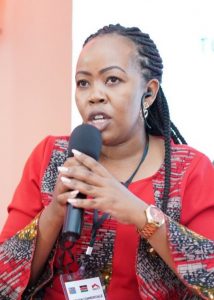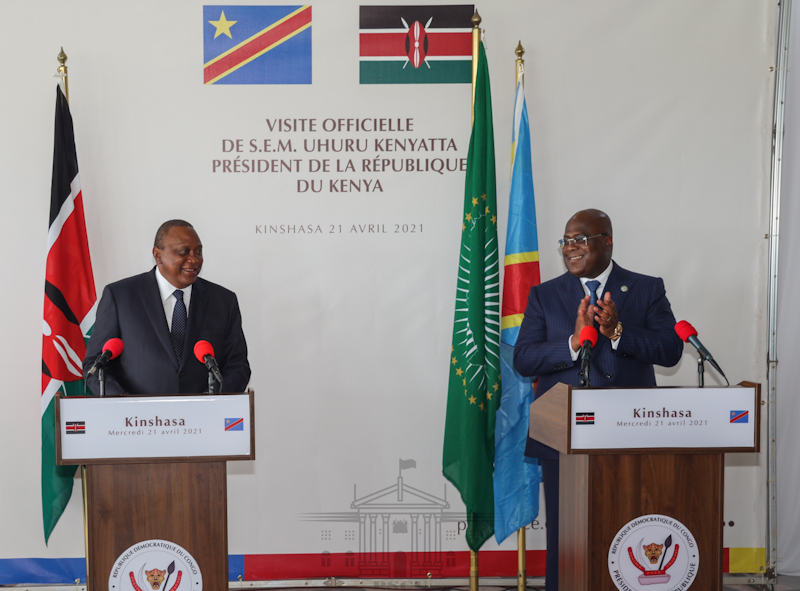
Recently, economists and political analysts have described the current DRC government as one that is keen to establish and implement infrastructure and policies that support the modernization and growth of the local economy. The DRC government has also made a formal application to join the EAC and this was approved at the 18th Extra-Ordinary Heads of State Summit making the nation the 7th member of the trade bloc.
The application to join the East African Community followed the signing of bilateral agreements with other member states of EAC including Kenya, Uganda and Rwanda aimed at improving infrastructure, transport, mining and security as well as promoting trade and protecting investments.
However, what perceptions or understanding of the market should local investors looking to venture into the DRC have?
From an external perspective, many of us know DRC for its culture particularly Lingala music which has gained popularity across the globe. We also know the country for its rich minerals and mining activities. However, DRC can be described as a land of opportunities with the potential to be a key driver of Africa’s economic influence.
For instance, Kinshasa, DRC’s capital city has the largest population in Africa with 14 million inhabitants and is also next to Brazzaville, the capital city of the Congo Republic. In addition, it is the 2nd largest French-speaking city after Paris in France. With an overall population of 100 million people, trade within the consumer market alone can elevate the Central African country beyond imagination.
The country also hosts the continent’s 2nd largest river, River Congo popularly known as Flueve Congo in local French dialect. River Congo feeds many households as it is home to many fish species that are fished for local subsistence use and as an economic activity. Beyond feeding many, the river has the potential to position DRC as the future of the energy value chain through the generation of hydroelectric power which is key in providing energy solutions to many homes, businesses and industries. River Congo also plays a great role as a key inland waterway with several inland ports anchoring trade and commerce from the Atlantic Ocean.
Other opportunities for investments also lie in food and agriculture, manufacturing, cross border trade, real estate sector, tourism and construction among many others. The opportunities that DRC offers can only be limited by our aspirations and ambitions as well as socio-economic factors that can be solved through partnerships with the government and other local entrepreneurs and SMEs.
The Governments of Kenya and DRC in collaboration with Equity Group organized the Kenya-DRC Trade Mission which saw over 300 local entrepreneurs and businesses participate and travel to the DRC for a 15-day trade mission. The Mission’s intention was to help these businesses identify business opportunities and establish market linkages and partnerships with the aim of promoting regional investment and expansion.
This is a welcome move because it has provided a platform and an avenue for local businesses to enter the DRC and learn more about how the market operates and what opportunities they can seize. The Trade Mission brought together over 7,000 businesses people from both Kenya and DRC creating a huge network for the entrepreneurs who were able to match-make and pursue their business objectives.
For instance, through the Trade Mission, Optiven Real Estate, a local Kenyan SME signed a partnership deal with Groupe Resolution, from DRC and together, they will offer affordable housing and land value-addition. The partnership is to be executed in two phases and the value of the investment is USD 15 million.
This new partnership is an indication of how Trade Missions such as these promote cross-border trade between investors and this is key in implementing the African Continental Free Trade Area aspiration of growing intra Africa cross boder trade from 15 per cent to the 60 per cent intra EU and intra USMCA trade.
As a business enthusiast, I would urge Kenyan entrepreneurs and MSMEs to take advantage of organized Trade Missions to experience markets they have interests in and to assess for themselves the opportunities and business niches they can explore and actualize.
The over 350 delegates from Kenya experienced DRC for 15-days and got front row experiences on the anticipated challenges, the quick wins they can reap and what they need to kick-start and sustain their operations in the Central African nation.
The DRC they now know has turned out to be quite different from what they thought they knew and they now have a chance to contribute to the elevation of DRC’s economy with an expected ripple effect on Kenya’s export value and quantities, money transfer transaction volumes and quantity and human resource transfer. An indication that a win for local entrepreneurs, investors and SMEs is a win for both the Kenyan and DRC economies in the end.
The Role of Regional Trade in Africa’s Recovery Post Covid-19
Christine Maina, is the President of the DRC Kenya Chamber of Commerce an organization that provides a platform and bridges the gap for investors interested in exploring new opportunities in the DRC.




